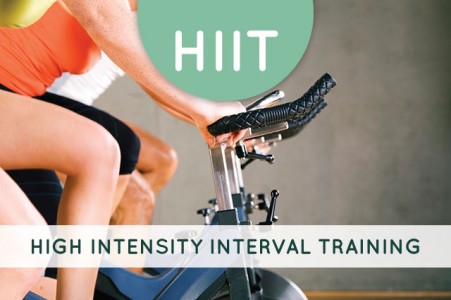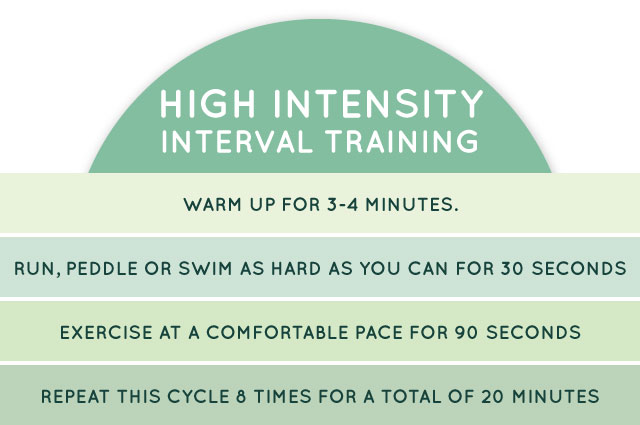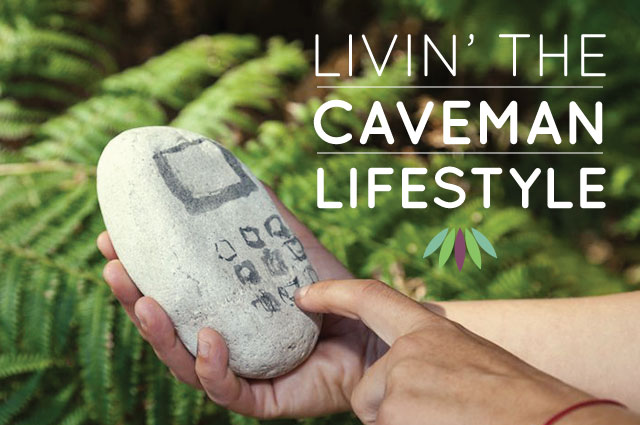Enough about eating like a caveman! What about livin’ like a caveman? Livin’ la vida caveman Paleo lifestyle! In order to be healthy we must attempt to emulate the conditions under which our bodies have evolved for millions of years. Straying too far from the caveman lifestyle will inevitably result in health issues. The tops three ways we can live the caveman lifestyle are sleeping, practicing intermittent fasting and doing ancient workouts – as cavemen have done for millions of years. Allow me to explain.
Sleep
Sleep is the single most important thing you must do to improve health. Sleep scientist, William Dement, has said that sleep, “is the most important predictor of how long you will live – perhaps more important than smoking, exercise or high blood pressure.” (6) People getting less than six hours of sleep per night were 12 percent more likely to die over a 25-year period than people getting 6-8 hours per night. (1)
I could go on and on, but you get the idea. You need to sleep. If you want to sleep well, you must recreate our ancient environment. Cavemen enjoyed sleep in complete darkness – the major component many are missing in their effort to get a good night’s sleep. They went to bed at sundown for the most part. And they didn’t stare at iPhones or the boobtube.
Our eyes and skin have light receptors, which indicate to our body to begin or stop melatonin production – one of the major hormones that regulate sleep. So, if you have light exposed to your eyes at inappropriate times, whether it be from a light outside your window at night, watching TV until you fall asleep or not being exposed to bright light during the day, you will have issues in regulating melatonin. And your quality of sleep will suffer.
The key to sleep is maximizing production of melatonin. We must work with our ancient bodies by reproducing the environment in the ways in which our bodies have become accustomed over millions of years. You will maximize your chances of improving sleep by optimizing melatonin production in the following ways.
Daytime Light Exposure
Exposure to light during the day, as our fellow caveman would have experienced, is essential to improve sleep. Since our eyes cue melatonin production, avoid wearing sunglasses when performing a primal sunbathing session. Get at least 30 minutes of exposure to bright sunlight every day.
It’s best to get sun exposure several times per day, with at least one of those times in the early morning. One, you have less exposure to harmful UV rays, but more importantly, morning sunshine is best for our circadian clock. Can’t get sun exposure? Sit next to a window, turn your computer to maximum brightness and turn on as many lights as you can during the day. Recreate!
Avoid Light at Night
Light exposure before bedtime can suppresses melatonin by more than 50 percent. (5) This means limiting or avoiding the television, computer, cell phone, etc. Fat chance; I know. Newsflash: Technology is disrupting your sleep. I’m guilty of this as much as the next person. I love my computer. More accurately, I am addicted to my computer and my iPhone.
Otherwise, you would not be enjoying these blog posts. But staring at your facebook page or checking on the latest celebrity train wreck right before bed is affecting your sleep. It’s even possible that you’re staying up too late because of your computer. It’s not a bad idea to install the program f.lux, which reddens and dims your computer screen after sunset. Ideally, avoid ‘exposure’ to any bright lights two hours before bed so your body will be cued to produce melatonin and induce sleep.
Sleep in Complete Darkness
Eyelids are translucent for a reason. They perceive light and signaled to our friendly cavemen when it was time to begin the hunt. Today, translucent eyelids serve mainly to disrupt our sleep! Even a small amount of light at night can disrupt circadian rhythms and sleep quality. (3)
Create darkness by using a sleep mask. I was amazed at how much better I slept with this simple solution. Next, sleep in a darkened room by removing even the tiniest, dimmest light sources, turning off outside lights and getting blackout curtains for your bedroom. Turn your alarm clock facedown. Just one pulse of light can suppress melatonin production and wake you up. Don’t turn on lights if you get up to go to the bathroom. Sleep walk Helen Keller style to the potty. Resist the urge to look at your clock or phone. Don’t be tempted to simply supplement melatonin and expect sleep miracles to happen.
Ameer Rosic, author of The Sleep Solution System, and whom I recently interviewed on the podcast, suggested only supplementing time-released melatonin for one week to get circadian rhythms back in order. After that, you must recreate a primal environment to facilitate its production. Melatonin is regulated very tightly in the body and is produced in tiny quantities. The body begins production around 2pm when the sun begins to lower in the sky and peaks around 2am. So, taking a large dose right before you go to bed is going to throw this delicate feedback loop out of whack. This is the reason melatonin supplementation doesn’t work for most people.
Intermittent Fasting
Did the word fasting throw you into a panic? No need to fear. I’m talking about intermittent fasting – fasting for a short period of time. Against their will, cavemen were forced to fast when food was not readily available on a daily basis. Our bodies are meant to fast on occasion or go without food for short periods of time. We would be wise to emulate this healthy practice.
I’ve never missed a meal, so I may not be the person to have an opinion on this, but I’m not a fan of fasting for more than a day or two. I believe longer fasts are depleting to the body in a day and age when most people are very depleted of nutrients, namely minerals. Cavemen ate a diet vastly more nutrient dense than we do today. We cannot nutritionally afford to go too long without food for this reason.
Fasts longer than 48 hours show no increased benefits. After 24 hours of fasting, cells become depleted of proteins, which impairs cellular function. (8) Additionally, studies show that fasts under 24 hours increase immunity, but longer fasts depress immunity. (7) Intermittent fasting (16 hours) gives you all the benefits of fasting while minimizing depletion since you’re eating every day. Why starve yourself if it’s not increasing benefits to you?
Benefits of Intermittent Fasting
- Improved sleep
- Increases insulin sensitivity – a key to fat loss
- Controls ghrelin – the hormone the tells us we’re hungry
- Boosts HGH (human growth hormone) by more than 1000%!
- Improves immunity (if 24 hours or less)
- Allows the body to detox
One of the easiest strategies you can employ to live like a caveman is to concentrate food intake during an 8-hour window during the day, preferably daylight hours. The circadian clock is strongly influenced by diet. Indeed, food intake dominates light in setting the circadian clock. When you eat only during daylight hours it sets your internal clock so you sleep better at night. People who eat at night tend to be night owls simply because it throws off their circadian rhythms – their internal clock. (4) At the very least eat several hours prior to bedtime.
Fasting has innumerable benefits. Doing a short 16-hour fast every day improves your hormones. It lowers blood sugar and insulin levels. Insulin is the hormone that tells your body to store fat. Fasting also regulates ghrelin. Ghrelin is the hormone that instructs us to eat. Proper regulation of this hormone will reduce hunger. When I wake up in the morning, I am amazed how I never feel hungry until 10am or so, even though I last ate at 4 or 5pm the previous day! Why? My body is burning fat for fuel. A ‘fast’ of this nature kicks your body into fat burning mode. It’s a win-win for your waistline and your health.
Detox is one of the best side effects of intermittent fasting. Digestion uses up a ton of our energy. When the body is allowed to take a short break from eating, the extra energy is used for repair and detox. The liver gets to work. The biggest benefits of fasting seem to begin as soon as the liver runs out of fuel, which happens in 16 hours. Autophagy is the process by which your body “cleans” itself. Any malfunctioning or old cells are purged & reabsorbed into our systems. Bacteria and viruses are also cleaned up. (2) Autophagy peaks after 16 hours of not eating. When we’re digesting food, autophagy is turned off.
Our bodies were clearly designed to go without food for short periods of time. By fasting we improve our circadian rhythms. Circadian rhythms have powerful influences on many biological processes, and disrupted circadian rhythms are a common feature of disease. Whether you’re trying to lose weight or improve your health, intermittent fasting is definitely a caveman tip worth trying. Fasting for 16 hours after fitting in all your food within 8 hours during the day is one of the simplest ways to biohack our ancient bodies.
The Hunter Gatherer Workout
 If you’re going to spend the time to work out, it pays to do a little homework and find out what kind of exercise is optimal for the body. This way you’re not doing too much, too little or a workout that’s inappropriate for your body. Use your time most constructively by taking some fitness tips from our fellow hunter-gatherers. They were all in pretty good shape so I think they might know what they’re talking about.
If you’re going to spend the time to work out, it pays to do a little homework and find out what kind of exercise is optimal for the body. This way you’re not doing too much, too little or a workout that’s inappropriate for your body. Use your time most constructively by taking some fitness tips from our fellow hunter-gatherers. They were all in pretty good shape so I think they might know what they’re talking about.
Workout like You’re Chasing Prey
Cavemen ‘worked out’ by chasing prey. This is exactly what our bodies were designed to do. Hunt prey, chase, miss, rest, hunt prey, chase, miss, rest, hunt again. Today, we call this simple workout HIIT or High Intensity Interval Training. Research shows that HIIT most effectively helps you burn off calories even after you are finished exercising. Do it at least times 2 times a week for 20 minutes. It doesn’t have to replace your favorite exercise. Just add it to your workout routine. You will be amazed at how effective HIIT can be. You can do HIIT running, walking, swimming, biking, or with any aerobic activity. 
Workout like a Gatherer
This aspect of your hunter-gatherer workout is resistance training. Gatherers spent hours a day squatting, reaching, hauling and carrying loads of fruits, roots, tubers and veggies – a workout very akin to any kind of strength training, weight lifting or Pilates. Or do some gardening. That will work, too. Gatherers also got this kind of workout building shelters. You want to do a gatherer-strength training session 2-3 times per week.
Workout like a Nomad
What do you do when you’re a nomad, be it searching for food or relocating to a warmer climate for the season? You walk! We’ve been walking long distances for millions of years. We didn’t have a choice! Long form (an hour or more) cardio like biking, swimming, jogging, walking, and the elliptical are great for simulating this aspect of the caveman workout. Make sure to get in long form cardio at least a couple times a week as it is good for your brain and has other important health benefits.
Over-exercising is very stressful to the body. Recent research shows that we should work out no more than four hours per week. (7) Any less than this negatively impacts health and any more than this or exercise that is too prolonged and intense can be counterproductive by releasing too much cortisol, a hormone that can cause you to gain weight. This can even lead to adrenal fatigue.
Why do we release cortisol if we work out too much? Because ancient man for the most part did not use his body in this manner. Of course, everyone is different. Some can tolerate far more stress and physical workouts than others. The four hours per week is an average for the average person. I hate to break it to all you cardio addicts and running enthusiasts, but our bodies were not built to run marathons and do six-minute miles. It tears our bodies and joints apart. Research shows it’s much better for your body to do HIIT and take long walks like our ancestors did long ago. But hey, if you love it and it makes you happy, knock yourself out!
Intermittent fasting, daytime light exposure, excluding light from the bedroom and a hunter-gatherer workout routine are simple practices. These are all things naturally practiced by cavemen. Livin’ the caveman lifestyle is the cornerstone of good health.










